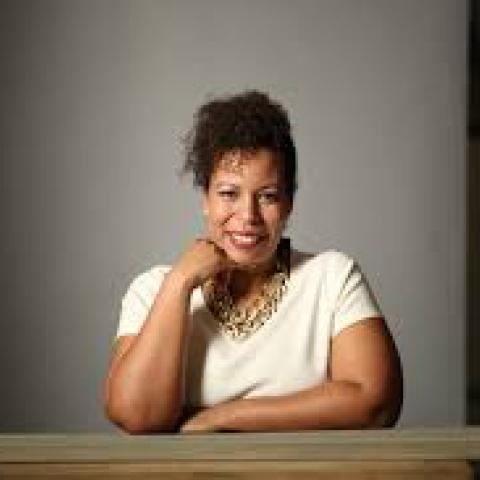What We See in the Mirror
In the three years since Hillary Clinton “put 18 million cracks in the glass ceiling” the question remains, “Can America elect a woman president?” There have been countless thought pieces diving into the nuance of of the presidential campaigns of the women running this year and analyzing what factors make them more or less viable than others as we march towards November 2020.
It seems pedestrian to ask the counter question, “Can America elect a man president?” The simple answer is obvious, of course, because we’ve elected men in every U.S. presidential election. But perhaps raising this question would help to illuminate the additional work women have to do to first establish that they can win before going about the business of winning. Included in that work is calling out the biases that put women at a disadvantage in American elections.
The women running for president in the 2020 election, in a likely uncoordinated effort, are doing this work, holding a mirror up to the face of American politics in the hope that we, as a nation, will see what our bias against women’s leadership really looks like. But they are not the first or only women to disrupt assumptions or expectations.
It has been well documented that women attempting to re-shape elected leadership in America face the question of their viability regardless of their qualifications, experience, resources and know-how. Women of color are the ones most often crippled by this question. Early in 2019, as the field for the 2020 presidential election was coming together, questions swirled around Georgia Democrat Stacey Abrams and whether or not she was a viable candidate. During her gubernatorial campaign, Abrams lost her election by 55,000 votes (1.4%) out of more than 3 million cast. She received over 250,000 more votes than the last two democrats to run statewide (Jason Carter and Michelle Nunn) and yet there was a question as to whether she had what it took to win. By all accounts Abrams’ candidacy changed the perspective on the possibilities that exist for black women’s executive leadership, particularly in the South.
Beto O’Rourke also came incredibly close to winning a seat that many deemed not competitive in 2018. He lost his bid for the U.S. Senate in Texas by 215,000 votes (2.6%), out of more than 8.3 million cast. O’Rourke was immediately added to the list of candidates declared and undeclared as discussion swirled in the media and the donor class as to who would be the Democratic standard-bearer in 2020. Abrams was not.
On paper, race and gender were the only two factors that differentiated these two trailblazing leaders. These factors have prevented so many women candidates of color from being able to get the traction necessary to have a successful campaign.
Why? In a recent survey, Fast Company found a majority of women entrepreneurs surveyed didn’t think a woman would be elected president because “sexism is still prevalent among the electorate.” Georgetown University’s Center on Education and the Workforce finds in their report that though bias against female politicians has declined over time, 13% of voters still report that women are less suited emotionally for political office than men. They conclude, “The role that sexism plays in politics is shrinking, but it’s still too substantial to ignore.”
So what’s a woman to do?
Most recently Kamala Harris asked voters at a Nevada town hall if American was ready to elect a woman president. The response from the audience was an honest but shocking “No!” The press reported it as a gaffe by the campaign, showing that the candidate is out of touch with the electorate, but I disagree. Though the audience’s response may have been different than the campaign expected (or wanted), it reflected the bias that Harris later elaborated on in her stump speech. In late September, she told an audience that she was used to dealing with the electability question, but added, “I have faith in the American people to know we will never be burdened by assumptions of who can do what based on who historically has done it.”
Though Elizabeth Warren has taken the lead in several polls and is one of the top fundraisers in the Deomcratic field, the question of her likability seems to be a hurdle she must clear for some as she continues to make indisputable gains in the polls. Axios conducted a small focus group of women in Wisconsin who mostly supported Warren’s policies, but doubted her electibility and her ability to lead based on how much they liked her style instead of her substance. This underscores the doubts some people have about women in leadership - that success is not determined by experience or background, as it is with most male candidates, but instead comes down to whether or not we like her. Warren, like Harris, has pushed back against claims that her gender will work to her disadvantage, emphasizing that she has proved doubters wrong before and plans to again in 2020.
Each woman in the presidential race has taken on the question of what makes them viable. They have answered the question directly and indirectly on many occasions. More often than not they answer by bringing their authentic selves to the campaign trail, speaking about their lived experiences as women in America and how those experiences inform their policies and platforms. By highlighting the difference in life experience from their opponents or predecessors, these women might offer an answer to the question, “Why aren’t we ready to elect a woman president?” Do voters fear that bringing more voices to the table will change the power dynamic too much? When we as a nation look in the mirror, are we surprised to find ourselves nodding yes?


